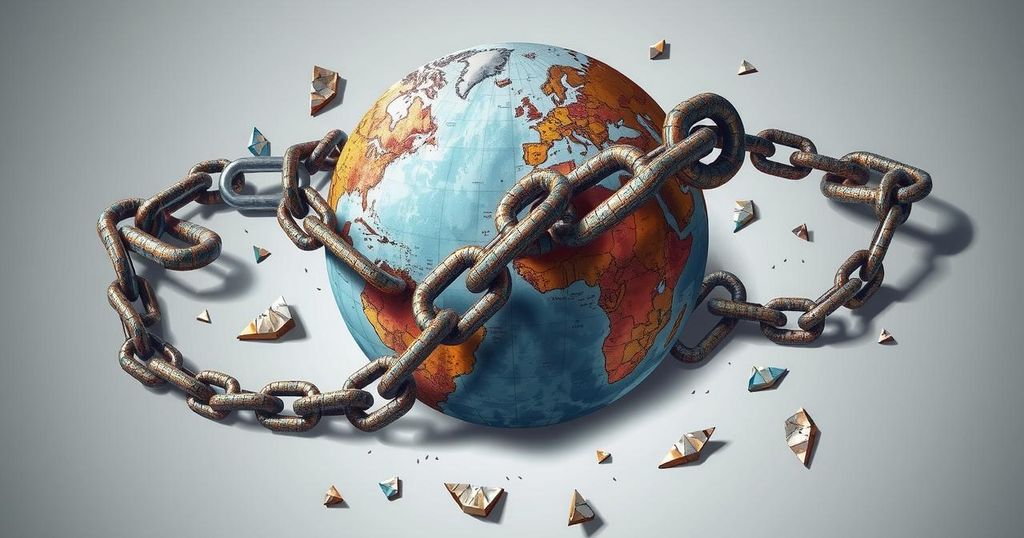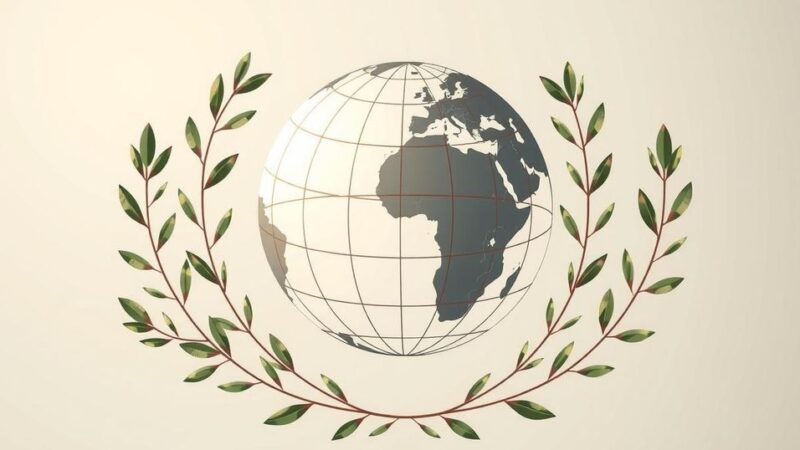The evolving relationship between President Trump and Nicolás Maduro illustrates a complex web of strategic interests. Initially opposing Maduro’s regime, Trump’s second administration appears open to negotiations for practical reasons, including deportations and geopolitical considerations. Amidst U.S. sanctions, concerns about China’s growing influence in Venezuela complicate the administration’s tactics going forward.
In 2019, President Donald Trump acknowledged Juan Guaidó, then the Venezuelan opposition leader, as the interim leader, opposing Nicolás Maduro, who has presided over Venezuela since 2013. This policy decision led to a formal severance of relations with the United States, aligning with the first administration’s strategy of maximum pressure advocating for regime change in Caracas. Six years later, the landscape has shifted significantly, with Trump entering his second term negotiating with Maduro concerning detained Americans and a willingness from Venezuela to accept repatriation for its nationals deported from the U.S.
Despite maintaining an anti-Maduro stance, the Trump administration is pursuing negotiations driven by Trump’s aspirations for deal-making and fulfilling his immigration policies. Current U.S. relations with Venezuela reflect a contentious balance, where Trump must address the demands of anti-Maduro factions while preventing the nation from drifting further into China’s sphere of influence. While the administration aims not to recognize Maduro formally and continues to impose sanctions, the diplomatic overtures signal a nuanced shift.
Trump’s envoy, Richard Grenell, visited Caracas to secure the release of detained Americans, indicating a potential thaw in relations. Simultaneously, Trump announced Maduro’s agreement to deport hundreds of Venezuelans from the United States. However, the administration’s revocation of Temporary Protected Status for Venezuelan nationals and the transfer of detainees to Guantanamo Bay showcase the complexities in their diplomatic approach toward Venezuela, alongside evident skepticism from both Republican and Democratic parties.
While Maduro publicly congratulated Trump on his victory, he also engages in confrontational rhetoric, demonstrating a keen understanding of his political needs and the precariousness of his regime’s survival amidst severe economic difficulties. Although poverty levels in Venezuela hover around 80%, the situation has shown incremental improvements, albeit hindered by declining oil production despite the country’s ample reserves.
Biden’s administration has relaxed certain sanctions, permitting oil companies to resume operations in Venezuela, contributing positively to its struggling economy. However, contradicting statements from Trump regarding potentially halting oil imports from Venezuela reflect his administration’s ambiguity concerning its oil policies, which could severely impact Venezuela’s financial recovery.
Moreover, the fraudulent 2024 elections in Venezuela created further geopolitical tensions. Many in Trump’s circle interpret Maduro’s election manipulation as justification for a rigorous stance against the regime, particularly given the significant support for anti-communist policies among Venezuelans in Florida. Trump’s appointments—including critics of Maduro—indicate an awareness of electoral implications while navigating relationships with America’s Latino constituents.
Maduro’s administration has demonstrated a capacity to endure U.S. pressure, and the increasing collaboration with China represents a complicating factor for U.S. interests. Xi Jinping’s congratulatory message to Maduro following the disputed election embodies the economic and diplomatic lifelines awarded to Venezuela by Beijing, challenging American hegemony in the region. Trump’s responsiveness to China’s influence in Latin America may waver depending on the internal dynamics within his administration and the constituencies he seeks to satisfy.
In summary, the evolving relationship between the Trump administration and Nicolás Maduro’s government underscores a complex interplay of strategic interests, international dynamics, and domestic political pressures. As Trump navigates this landscape, the administration’s tactics may fluctuate, influenced by both external factors, including Chinese involvement in Venezuela, and internal factions advocating for different approaches. Ultimately, how Trump balances his aims for immigration reform and sanctions against Venezuela could significantly impact the geopolitical landscape of Latin America.
Original Source: theconversation.com






